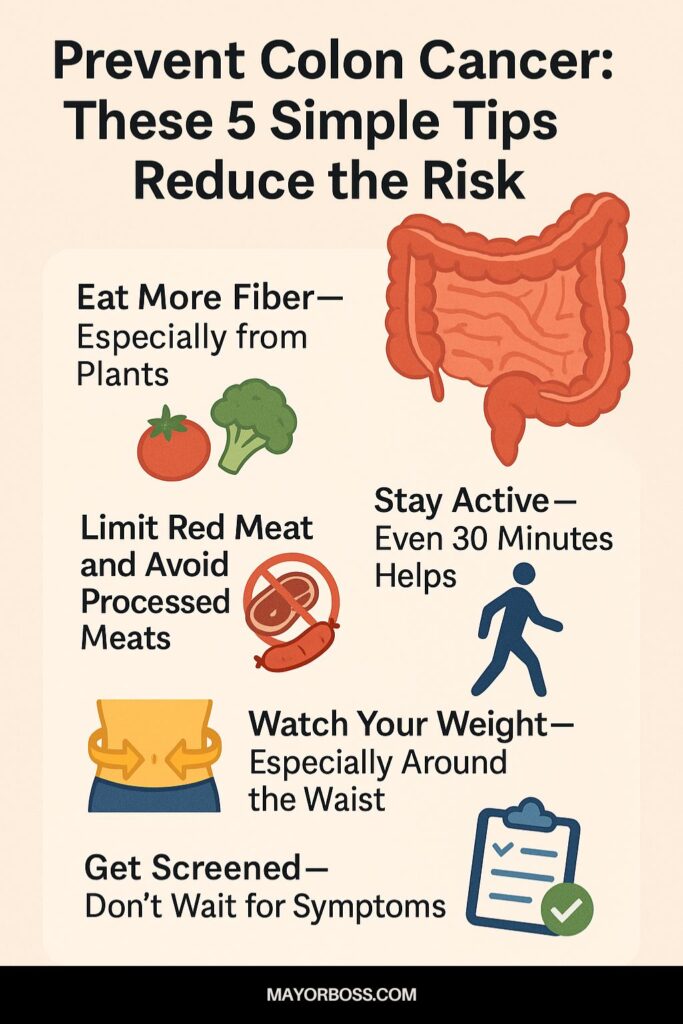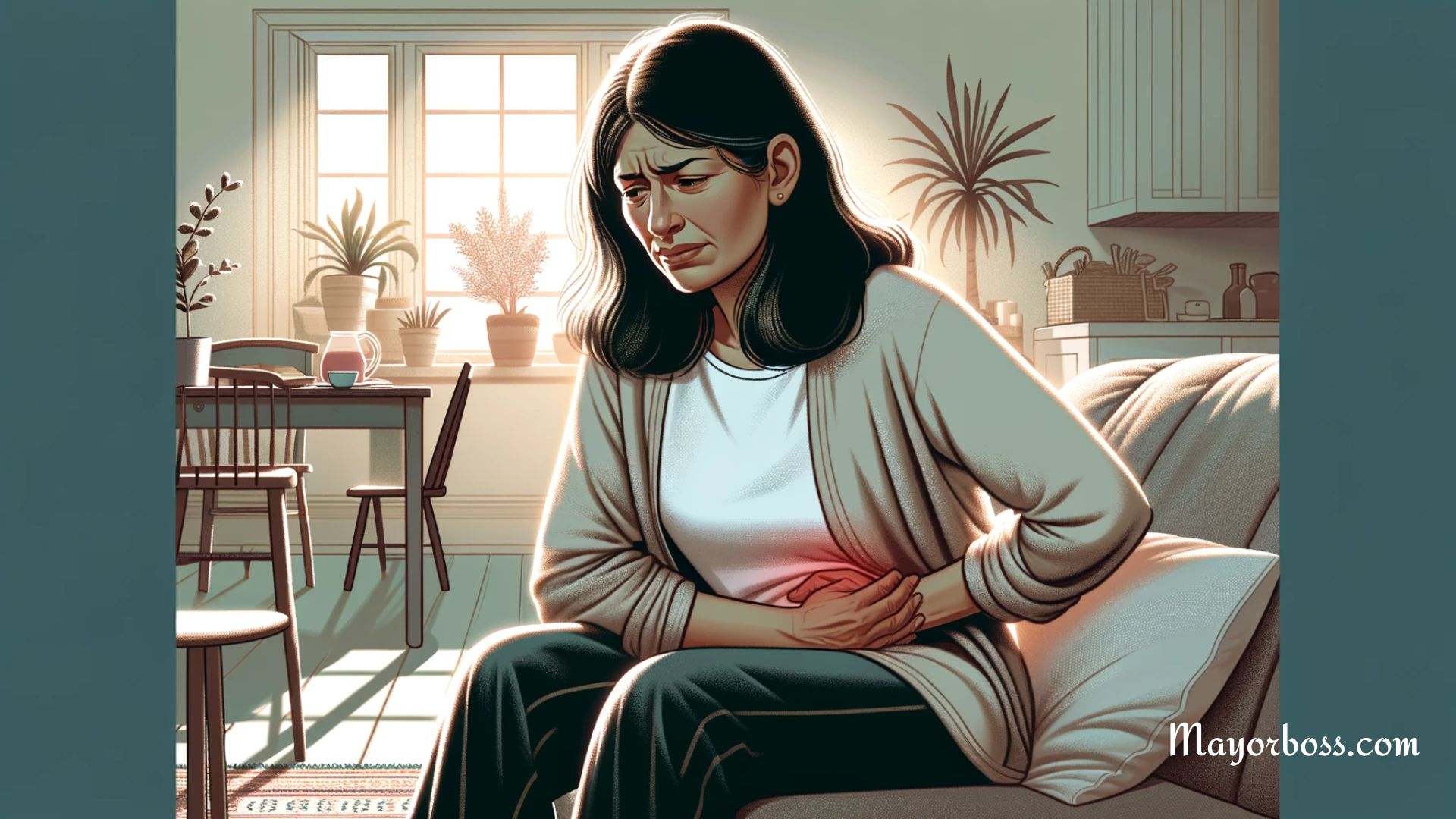Prevent Colon Cancer: These 5 Simple Tips Reduce the Risk
You can lower your risk of colon cancer by making small changes to your diet, lifestyle, and screening habits. These five evidence-based tips help protect your colon health and may prevent cancer before it starts.

Colon Cancer Is More Common Than You Think
Colon cancer, also known as colorectal cancer, often develops without warning. According to the Mayo Clinic, “People in their 50s, 40s, and younger are increasingly being diagnosed with cancers of the colon and rectum.” It can grow quietly for years before showing any symptoms. That’s what makes prevention so important.
While family history can play a role, most cases are linked to diet, lifestyle, and age. The good news? You can take steps to protect yourself, starting today. These five tips are easy to follow and backed by science.
1. Eat More Fiber, Especially from Plants
Fiber helps your colon stay clean and healthy. It speeds up digestion and reduces the time waste sits in your bowel, which lowers exposure to harmful substances. Studies show that diets high in fiber, especially from fruits, vegetables, and whole grains, may reduce colon cancer risk by as much as 30%.
What to do:
- Add a handful of berries to breakfast.
- Choose brown rice or quinoa over white rice.
- Snack on raw carrots, cucumbers, or apples.
2. Limit Red Meat and Avoid Processed Meats
Eating too much red meat, especially when grilled or fried, can irritate the lining of your colon. But the real danger lies in processed meats like hot dogs, bacon, and sausages. These have been strongly linked to colon cancer in multiple studies.
What to do:
- Try plant-based protein a few times a week.
- Bake or steam meats instead of frying.
- Replace bacon with avocado or eggs in breakfast meals.
3. Stay Active, Even 30 Minutes Helps
Physical activity helps regulate hormones and digestion. It also reduces inflammation and supports a healthy immune system. Regular exercise has been shown to lower colon cancer risk by up to 24%.
What to do:
- Walk briskly for 30 minutes daily.
- Use stairs instead of elevators.
- Dance, swim, bike—anything that keeps you moving.
4. Watch Your Weight, Especially Around the Waist
Carrying extra fat around your midsection raises your risk of several cancers, including colon cancer. Belly fat increases inflammation in the body and disrupts hormone levels. Even small weight loss can improve colon health.
What to do:
- Cut back on sugary drinks and processed snacks.
- Eat slowly and stop before you feel full.
- Focus on consistency, not perfection.
5. Get Screened, Don’t Wait for Symptoms
Colon cancer often begins as small, harmless growths called polyps. These can be found and removed during a colonoscopy, before they turn into cancer. Regular screening saves lives. In fact, colonoscopy can reduce the risk of colon cancer death by over 60%.
What to do:
- Start screening at age 45, or earlier if you have a family history.
- Ask your doctor about stool-based tests if you want non-invasive options.
- Don’t skip appointments.

FAQs
1. At what age should I start screening for colon cancer?
Most people should begin screening at age 45. If you have a family history, your doctor may recommend starting earlier.
2. What are the symptoms of colon cancer?
Symptoms may include blood in the stool, changes in bowel habits, weight loss, or fatigue. However, early colon cancer often has no symptoms.
3. Can diet alone prevent colon cancer?
No single food prevents cancer, but a healthy diet lowers risk. A plant-rich diet with fiber, antioxidants, and fewer processed meats is protective.
4. Is colon cancer genetic?
Some types are hereditary, but most cases are linked to lifestyle. Even with a genetic risk, prevention steps still help.
5. How often should I get a colonoscopy?
If your first test is normal, you may only need a colonoscopy every 10 years. However, follow-up depends on your personal risk and your doctor’s advice.






